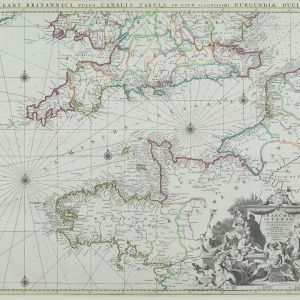English History Terms and Turkish Equivalents
Knowing the terms we come across in history conversations or readings is very useful for improving your English language skills. Learning history terms such as "revolution", "dynasty", "colonization" both helps you understand historical texts better and expands your vocabulary when expressing your own ideas.
English History Terms and Their Turkish Equivalents
Learning English history terms not only improves your English language skills but also strengthens your general knowledge. With basic words such as "empire", "treaty", "rebellion", you can better understand historical events and follow conversations about the past.
In this article, you will discover the most frequently used history terms in English and their Turkish equivalents, and learn how to use these words in different sentences. By proceeding with short and simple examples, you will make history terms memorable and be more comfortable when expressing yourself. Let's start to expand your English vocabulary in the context of history!
What are English History Terms?
History
Event
Era / Epoch
Century
Decade
Ancient
Modern
Medieval
Renaissance
Revolution
Rebellion
Civilization
Empire
Kingdom
Dynasty
Colonization
Alliance
Treaty
Surrender
Conquest
Battle
War
Victory
Defeat
Industrial Revolution
World War I / II
Cold War
French Revolution Revolution
American Civil War
Independence
Reformation
The Crusades
Abolition
Migration
Settlement
Trade
Exploration
Cultural Exchange
Influence
Legacy
Tradition
Chronology
Source
Document
Evidence
Narrative
Perspective
Interpretation
English History Terms Example Sentences
Revolution:
● “The French Revolution marked a turning point in European history.”
(The French Revolution was a turning point in European history.)
Dynasty:
● “The Ming Dynasty ruled China for nearly three centuries.”
Colonization:
● “The colonization of Africa had a profound impact on its culture and economy.”
Treaty:
● “The Treaty of Versailles officially ended World War I.”
Abolition:
● “The abolition of slavery was a major milestone in American history.”
Migration:
● “The Great Migration saw millions of people move to urban areas in search of jobs.”
(During the Great Migration, millions of people moved to urban areas to find work.)
Rebellion:
● “The rebellion against the king was a response to high taxes and corruption.”
Exploration:
● “The Age of Exploration led to the discovery of new continents.”
Empire:
● “The Roman Empire was one of the most powerful civilizations in ancient history.”
Legacy:
● “The legacy of ancient Greece is still evident in modern architecture.”
As sculin.com, we will make English history terms more permanent and strengthen your reading and comprehension skills with the sample sentences we have prepared for you.
Using English history terms will no longer be a mess, but a way to better explain historical events. Because when learning a language, just knowing the words is not enough; understanding the background and context of that word is also very important. The subject of English history terms is a great starting point to develop exactly this skill!


 Sculin Kids
Sculin Kids 